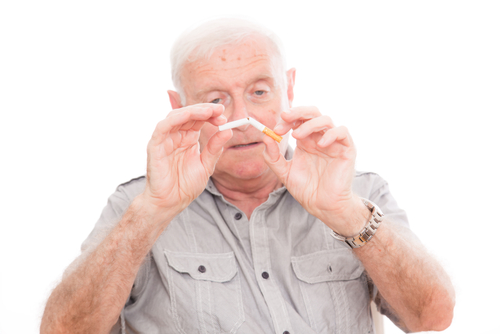Another great reason to quit smoking on World No Tobacco Day 31 May 2017
By Tim French, Accredited Exercise Physiologist- Northside Allied Health
It’s a well-known fact that smoking affects your physical health and puts you at risk of a myriad of diseases, including lung, tongue and mouth cancers, heart disease and stroke. So, it’s not surprising that smoking also makes it harder to exercise as the concoction of chemicals in the cigarette and its smoke affect the function of your lungs, blood and heart.
The tar in cigarette smoke creates a thick layer around your lungs, decreasing the elasticity and thereby affecting your lung capacity while the nicotine and carbon monoxide make your blood sticky and narrow your arteries. Decreasing the ability to circulate oxygen will place further stress on your cardiovascular system and most notably on your heart.
Compared to the non-smoker, a smoker has an uphill battle when performing a workout with reduced lung function, one of the many reasons to make a healthy change and put the butt out for life!
But if quitting was as easy as ABC, wouldn’t everyone just give up? Unfortunately, the habit is not only physically addictive but a psychologically embedded habit and research suggests that most people need an extended support network to quit, without a relapse.
Enlisting the help of friends, family and health professionals to support you during the quitting phase is imperative to your success. Not only will they help you manage cravings and triggers that tempt you to smoke but they will support you emotionally when the going gets tough.
Exercise is a commonly used strategy when quitting smoking and should form a major part you’re your quit plan. Known for its multi-tiered benefits, exercise has a lot to offer the quitting smoker including a physical release and increased serotonin surge, as well as welcomed distraction when cravings creep in. It will also reduce stress and because you are no-longer inhaling the afore mentioned chemicals, you will revel in noticeable physical differences, with improved blood flow, circulation and oxygen levels. Your skin, teeth and hair will also start to appear healthier and rebuild their tone and elasticity. So not only will you be feeling better, you will be looking better.
One of the many barriers to quitting smoking is the fear of weight gain, another factor that exercise can combat. Research shows that people quitting often replace the habit of smoking with snacking as they search for something to do with their hands and mouth, an action often committed out of boredom. Eating mindfully can assist with being aware and in control of your actions and preparing meals and snacks in advance will help manage snacking habits. An accredited dietician can help you meal plan and work out the best diet for your body and lifestyle whilst selecting foods that have the right level of nutrition to support your body during this difficult period.
It is important when embarking on any new exercise regime, particularly when ceasing smoking, to get a physical assessment with your GP. Working with an exercise physiologist who understands your physical conditions and limitation as well as what you are going through emotionally, will ensure you are exercising within safe and managed conditions.
For more information on the team of Accredited Exercise Physiologists at Northside Allied Health, visit www.northsidealliedhealth.com.au
Resources:
https://smokefree.gov/challenges-when-quitting/managing-withdrawal

